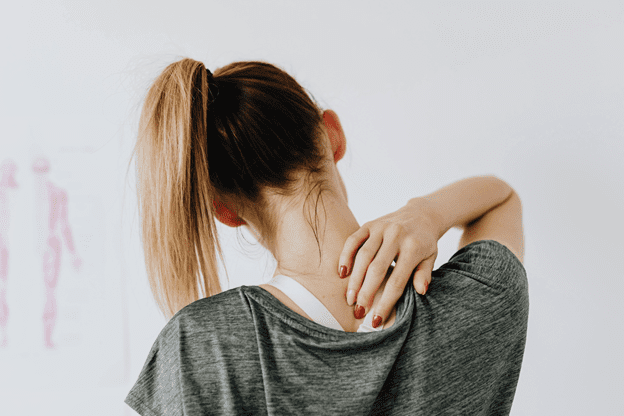Muscle aches can strike anyone. Whether they’re a fitness enthusiast or a desk-bound worker, no one is safe from experiencing random pains in their body. But what causes these sudden aches, and what’s the key to finding effective and immediate relief?
In this article, we’ve answered all your queries related to muscle aches. From its various causes to common remedies, everything you need is right here.
What Causes Muscle Aches?
Common muscle aches can stem from various sources, including:
Stress and Tension
These two go hand-in-hand when it comes to causing muscle aches. When the brain undergoes emotional stress and anxiety, the body’s reaction is to tense up in defense. Under the tension, your muscles tighten and become rigid. Eventually, you’ll feel spasms of pain across your body, particularly the neck, shoulders, and back.
Lack of Sleep
Research shows that the body’s healing and repairing process is most active when sleeping. But, if you’re running on insufficient sleep, your body will be more sensitive to pain and have a lower tolerance for it. As a result, you might experience lower back pains, body aches, and even chronic pain.
Physical Exertion
One of the most common causes of muscle aches is physical exertion or overuse of the muscles. This usually happens when you’re engaging in intense or unfamiliar exercises. However, the pains aren’t instant. You’ll only feel strains and soreness in your body a few days after the intense workout.
Medical Conditions
There are several medical conditions that cause muscle aches. A common example is fibromyalgia, a chronic disorder that causes tenderness and pain in the body. The pains might also be due to inflammation, a reaction your immune system activates to fight off infections. While good for your body, inflammation can usually leave you feeling fatigued and aching.
Common Remedies for Muscle Aches
Dealing with muscle aches can be challenging, but several remedies provide relief, some of which are given below:
Rest and Recovery
Rest and recovery after strenuous activity or exercise are necessary to reduce muscle aches. Note that this remedy doesn’t discourage you from exercising regularly; instead, it pushes you to strike a balance to prevent overexerting yourself. Additionally, you should sleep at least 7 hours a night to contribute to your body’s overall health.
Stretching and Light Exercise
Partaking in stretching and light exercise from time to time can also help relieve muscle aches. Gentle stretching can help reduce tension in tight muscles, while small exercises like walking or yoga can promote blood flow. Just remember to perform these exercises in moderation so as not to over-exert yourself.
At-home Remedies
If you’re looking for solutions that are instant and require less physical labor, there are a few at-home remedies you can try:
- Hot and Cold Therapy: Heat therapy helps reduce muscle strain and stiffness, while cold therapy reduces inflammation. To apply either one, simply place an ice pack or a warm towel on the affected area and leave it on for 20 minutes.
- Massages: A gentle massage also helps reduce stiffness and improves blood circulation. For this, you can apply your own hands or use a massage device for more convenience.
Conclusion
Muscle aches can result from a number of factors, including physical strain, lack of sleep, and emotional stress. Fortunately, there are various common remedies you can try to alleviate the tightness and pain in your muscles. You could increase the rest and recovery time after strenuous exercises or partake in milder stretches. You can also try several at-home remedies for quick and easy relief.
Frequently Asked Questions about Muscle Aches
What are the most common causes of muscle aches?
Muscle aches commonly stem from three main sources: physical exertion (overuse of muscles, felt a few days after intense exercise), stress and tension (which causes muscles to tighten, especially in the neck and shoulders), and lack of sleep, which lowers the body’s pain tolerance and sensitivity.
Are rest and recovery enough to heal muscle aches?
Rest and recovery are crucial, especially after strenuous activity, but they are often best combined with other remedies. Gentle stretching and light exercise help promote blood flow, and localized treatments like patches for sore muscles or cold therapy can provide instant relief from pain and inflammation.
How does heat therapy help relieve sore muscles?
Heat therapy is one of the recommended at-home remedies. Applying heat (such as a warm towel or heat patches) helps to reduce muscle strain and stiffness by increasing blood circulation to the affected area, which promotes healing and relaxation.
What types of over-the-counter remedies are effective for muscle aches?
Effective at-home remedies include gentle massage, alternating hot and cold therapy, and using patches for sore muscles. Patches, such as medicated heat or cooling pads, offer a convenient, long-lasting, and targeted way to deliver relief directly to the area of pain.



